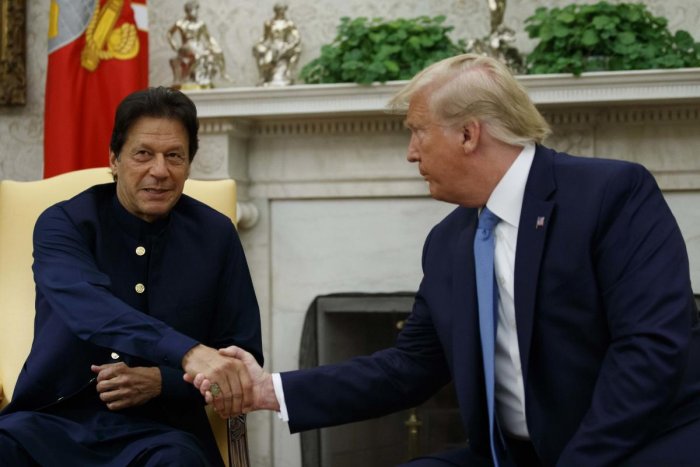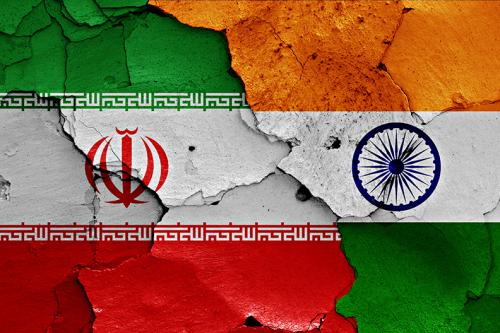Zalmay Khalilzad, former U.S. Ambassador to Afghanistan, recently posed a critical question in light of Donald Trump’s 2024 presidential victory: How would General Asim Munir explain the ongoing unjustified imprisonment of Trump’s friend, Imran Khan? This query is not merely rhetorical; it highlights the central dilemma facing U.S. foreign policy as Trump’s return to the White House raises the stakes for Pakistan’s political future.
With Trump’s victory in the #USA election, how would General Assim Munir explain the ongoing unjustified imprisonment of his friend Imran Khan. It is time to release Imran Khan and others who are being held without a fair judicial process. #Pakistan
— Zalmay Khalilzad (@realZalmayMK) November 7, 2024
Zalmay Khalilzad, a seasoned U.S. diplomat and former Ambassador to Afghanistan, is well-known for his substantial influence on American foreign policy, particularly in South and Central Asia. During the Trump administration, he served as the U.S. Special Representative for Afghanistan Reconciliation, where he was a key architect of the 2020 Doha Agreement with the Taliban, setting the stage for the U.S. military’s withdrawal from Afghanistan. Khalilzad’s recent question about Pakistan’s handling of Imran Khan’s imprisonment gains significance due to his expertise and deep regional insights. His commentary signals potential recalibration in U.S.-Pakistan relations under Trump’s renewed leadership, where Khalilzad could potentially reprise a strategic advisory role in shaping the administration’s foreign policy direction.
The Biden administration has largely overlooked the rising authoritarianism in Pakistan under General Asim Munir’s military-led government, ignoring issues such as election fraud, political repression, and the erosion of civil liberties. Matthew Miller, the Spokesperson for the U.S. Department of State, has repeatedly deflected questions concerning human rights violations in Pakistan.
This fact was highlighted by PAKPAC in its announcement endorsing Trump for the 2024 presidential election.
We are proud to endorse @realDonaldTrump in the 2024 Presidential election
After extensive meetings with the Trump & Harris campaigns, we believe the former President is the candidate who will improve 🇺🇸🇵🇰 relations and promote true democracy in 🇵🇰
Read our statement below: pic.twitter.com/tb36i4eHCC
— PakistaniAmericanPAC (@PAKPAC) October 18, 2024
However, with Trump back in power, the question arises: will U.S. policy towards Pakistan take a dramatic shift, especially in light of Trump’s previously strong bilateral ties with Imran Khan’s government?
Arrests, Election Fraud, and Judicial Subjugation
Imran Khan’s imprisonment, which has been condemned as politically motivated and unjust, stands at the center of the political and human rights crisis in Pakistan. The international community, including organizations like Amnesty International and UN Working Group have called for his immediate release.
“Amnesty International has found several fair trial violations under international human rights standards which have resulted in his arbitrary detention, denying his right to liberty….Amnesty International calls on the Pakistani authorities to immediately release Imran Khan from arbitrary pre-trial detention,” said Amnesty International in a statement on September 11, 2024.
“Detention of Imran Khan violates International law,” said UN Working Group.
#Pakistan #UnitedNations : The UN Human Rights Council’s Working Group on Arbitrary Detention demands that former Prime Minister Imran Khan be released without delay, that he be compensated, and that the government take action against those accountable for violating his rights.… pic.twitter.com/L3MtdilRCg
— International Human Rights Foundation (@IHRF_English) July 1, 2024
Pakistan’s 2024 general elections, plagued by irregularities and manipulation, saw the military-backed PML-N-PPP coalition take control, sidelining Khan’s party, PTI. In response, the U.S. Congress introduced Human Rights Resolution 901, which condemned the fraudulent election process and the systematic suppression of political opposition. The resolution expressed concerns over the lack of transparency, voter intimidation, and the use of state power to stifle dissent, urging Pakistan to uphold democratic principles and human rights. Despite these calls, the Biden administration has taken no meaningful action, continuing to overlook the political repression and human rights violations unfolding in Pakistan.
Despite passage of H.Res.901 Biden admin has taken no action to stop political repression in 🇵🇰
PAKPAC allies @RepSusanWild and @RepJames have written a bipartisan letter to the admin urging them to take action
Tell your Rep to sign letter here: https://t.co/hXArjKFCsT pic.twitter.com/ef0r2Qh2Ee
— PakistaniAmericanPAC (@PAKPAC) October 29, 2024
The Biden administration’s inaction in the face of rising authoritarianism in Pakistan has been viewed as a missed opportunity to uphold democratic values and human rights in the region. U.S. Congressman Greg Casar reinforced this sentiment in his letter to the administration, urging action against the military regime of General Asim Munir. The administration’s reluctance to confront Pakistan’s military-backed government over electoral fraud, the imprisonment of opposition leaders, and the suppression of dissent has enabled General Munir to strengthen his hold on power with impunity.
With Trump back in power, this dynamic could change. His more direct and confrontational approach to foreign policy, marked by a willingness to bypass traditional diplomatic channels and engage in unorthodox measures, suggests that U.S. engagement with Pakistan may take a more assertive turn. During his previous term, Trump displayed a readiness to use personal relationships and leverage economic and military aid to achieve U.S. interests. Given his rapport with Imran Khan—evident during Khan’s 2019 visit to Washington, where Trump expressed admiration for him—Trump could potentially push for Khan’s release, challenge the military’s interference in politics, and pressure for reforms to protect Pakistan’s democracy and judicial independence. Such moves would signal a shift from the current administration’s more cautious stance and could reshape the U.S.-Pakistan relationship with an emphasis on democratic accountability.














